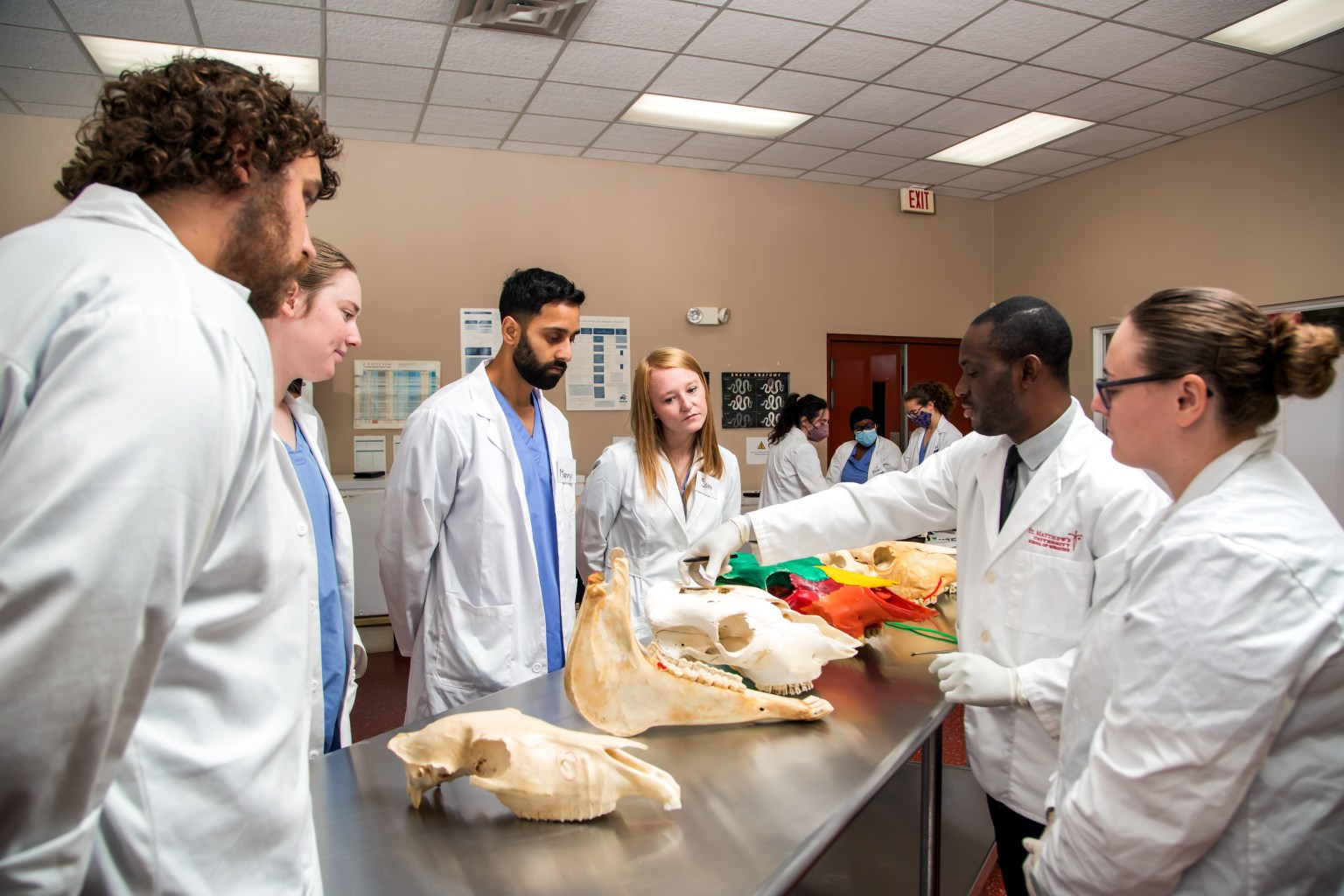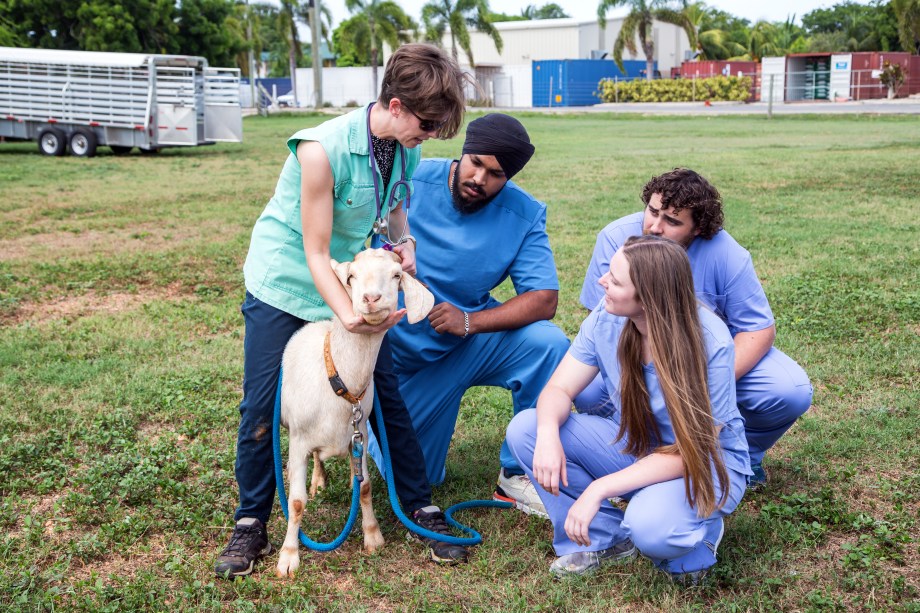
Curriculum Overview
Pre-Veterinary Master’s Program
Degree awarded: Master’s of Science in Biological Sciences
Program length: 8-months (2 semesters)
Total credits: 32
Semester 1
15 credits
Introduction to Histology
BMS 411
Credits: 4
This course introduces students to the microscopic structure of cells, tissues and organs as the foundation for understanding human biology and disease. Emphasis is placed on developing visual recognition skills and correlating microscopic structure with cellular and tissue function. Students will learn to identify major tissue types, interpret histological images and describe structural features in clear biomedical language.
Organic Chemistry/Biochemistry
BMS 409
Credits: 3
The course Organic Chemistry/Biochemistry will provide students with the opportunity to learn about the nature of carbon in organic compounds. It presents general principles of organic chemistry related to structure, stereochemistry, nomenclature, synthesis, uses and reactions of alcohols, ethers and aliphatic hydrocarbons (alkanes, alkynes, alkenes, cycloalkanes). Furthermore, this course relates the basic concepts of Organic Chemistry/Biochemistry to the structure and function of biological molecules, enzyme structure, function and regulation, the biochemical pathways of intermediary metabolism and their regulation in normal and aberrant states.
Organismal Biology
BMS 404
Credits: 3
This course focuses on the basic principles of cell biology, including the chemical basis of life, cell structure and function, and cellular energetics. It also introduces Mendelian genetics and the fundamentals of molecular biology, including DNA structure and dynamics, gene expression and biotechnology. A brief overview of the cellular mechanisms of development is also included. All concepts are presented in the context of evolution. These foundational topics are reinforced through application of the scientific process to the practice of medicine. Critical thinking skills are underscored throughout the course.
Math and Physics for Biological Sciences
BMS 410
Credits: 3
The course Math & Physics for Biological Sciences consists largely of precalculus topics, but also includes a substantial treatment of probability. The precalculus topics include relations, functions, coordinate systems, graphing, polynomials, trigonometric functions, algebra, and logarithmic and exponential functions. Probability topics include random experiments and random variables, algebra of sets, methods of enumeration, sampling, conditional probability, and distributions of discrete types. In addition, this course includes base and derived units, vectors and scalars, kinematics in one and two dimensions, dynamics, circular motion and gravitation, equilibrium, elasticity, fluids and hydrostatics, fluid dynamics, vibration and waves, sound, electrostatics, current electricity, magnetism, light and basic geometrical optics, heat, and introductory atomic and nuclear physics.
Medical Terminology*
BMS 403
Credits: 2
Medical Terminology prepares pre-medical students for the complex language of medicine. Students will become familiar with the vocabulary for accurately describing the human body and associated components, conditions and processes in a scientific manner. This course will also help students understand unfamiliar medical terms and appreciate their clinical applications.
Semester 2
17 credits
Clinical Anatomy
BMS 400
Credits: 4
Anatomy is a lecture and laboratory course where students will acquire a basic knowledge of both the gross structure and functional anatomy of organs and systems. Concurrent with lecture and small group work, students participate in laboratory sessions and study a variety of imaging techniques (including X-rays, CT and MRI scans). Emphasis is on the identification of normal gross structures, with lectures and demonstrations used to illustrate clinically relevant normal and abnormal findings.
Medical Physiology
BMS 401
Credits: 4
In the course Physiology, students learn the normal functions and regulation of cells, organs and organ systems, and physiological integration of the systems to maintain homeostasis – with emphasis on clinically relevant concepts. Lectures cover the neural and humoral homeostatic mechanisms and understanding of the physiology of muscular, cardiovascular, respiratory, endocrine, reproductive, gastrointestinal and renal systems. In addition, the pathophysiology of selected disease states is explored.
Cell and Molecular Physiology
BMS 402
Credits: 5
In the course Cell and Molecular Biology, students will gain an understanding of cellular functions. Topics include: macromolecular function and regulation, mechanisms of gene expression and inheritance, cell structure and function, and diagnostic biotechnology.
Health and Disease
BMS 208
Credits: 4
The course Health and Disease introduces students to basic concepts related to nutrition, microbiology, (co-) evolution, heritable disease, and substance abuse. It provides students with the opportunity to understand biology, health and disease in the context of heredity and infectious disease.
*The Medical Terminology course is offered exclusively online. This course also offers the option to test out of the class. All other courses may be attended either in-person on the Medical University of the Americas campus, or online.

Questions?
Please contact us at info@stmatthews.edu for more information.